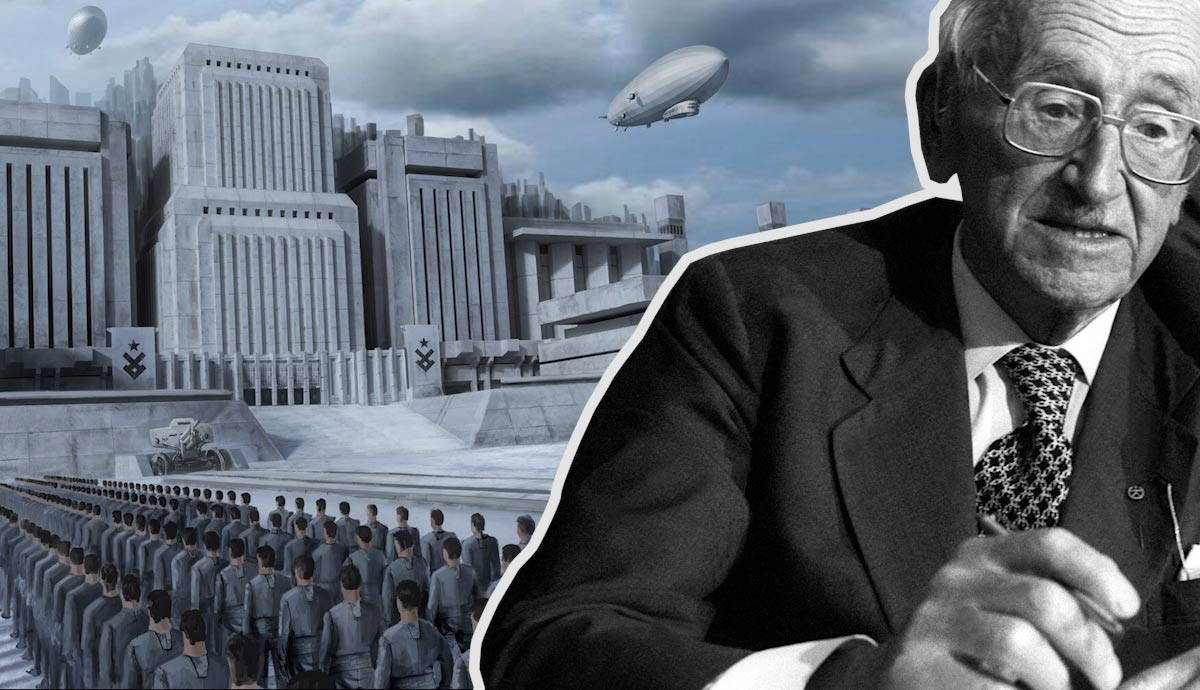
If you’re a fan of political philosophy, then you’re probably familiar with the work of Friedrich Hayek. One of his most famous and controversial pieces is The Road to Serfdom, which has become a cornerstone of classical liberalism. It is an extended argument against state intervention and in favor of individual autonomy. This article explores The Road to Serfdom, its arguments, and its influence.
Key Ideas of The Road to Serfdom

The Road to Serfdom is a classic book by Friedrich von Hayek, who won the Nobel Prize in Economics in 1974. Having been translated into over 20 languages, the book presents one of the most influential cases for classical liberalism. It has been a major influence on modern world politics and economics. It has been used to justify economic deregulation and to promote a return to the competitive market model in the United Kingdom under Margaret Thatcher and the United States under Ronald Reagan.
From the get-go, Hayek argues that any kind of central planning is bound to lead to tyranny. He believes that giving too much power to the government over economic decision-making tends towards authoritarianism, as it puts an enormous amount of control in the hands of a small group.
Instead, he advocates for individual freedoms, decentralized decision-making, and vigorous competition in order to promote prosperity and innovation. Hayek also criticized socialism— or at least what he saw as its inevitably negative outcomes—arguing instead for what we now call ‘classical liberalism,’ which stresses the importance of free-market principles in creating a prosperous society.

In the book, Hayek argues that economic planning inevitably leads toward socialist ideology. He believes this is accompanied by an escalating move toward totalitarianism and ultimately deprives citizens of fundamental human freedoms. To him, Nazism and fascism were not a reaction but rather an inevitable development of socialism.
Hayek divides his work into 15 chapters, with each offering fundamental statements. For instance, he notes in “Individualism and Collectivism” that socialists believe in two incompatible things—organization and freedom.
Hayek explains that socialism involves creating social security for people, equality, and universal justice through planned economies. At the same time, liberalism ensures free competition while preventing corruption, ignorance, abuse of power, fraud, or monopolies. This is clearly a contestable characterization of these two systems of government, but it has proven to be incredibly influential among many subsequent, right-leaning politicians in the Western world.
By contrasting Western capitalist economies with the totalitarian regimes cropping up throughout Europe during his lifetime (Hayek wrote The Road to Serfdom between 1940-1943), he sought to show that competitive market systems allow individuals’ choices and preferences to govern economic outcomes more effectively than centralized planning can.
Why Does Hayek Criticize Central Planning?

Friedrich Hayek was an Austrian-British economist and philosopher. He was a champion of classical liberalism. He believed that free markets and individual liberty were the keys to a successful society and that too much government intervention could actually end up doing more harm than good.
Central planning, according to Hayek, is one of the biggest threats to this idea of individual freedom. When the government takes control over everything from prices to production quotas, it can stifle innovation and creativity in favor of uniformity and conformity.
Hayek also argued that central planning relied on a kind of “pretense of knowledge”—meaning that those in charge assumed they knew what was best for society as a whole without ever really understanding or accounting for all the complexity and unpredictability inherent in human behavior.
Instead, Hayek championed decentralized decision-making processes where individuals could act freely based on their own unique circumstances and experiences. It’s like giving everyone at the barbecue their own personalized condiment station so they can put as many pickles (or ketchup or mustard) on their burger as they please.
So why does Hayek critique central planning? Ultimately because he saw it as stifling individual choice and agency and relying on faulty assumptions about what people really want and need. Whether you agree with him or not, his ideas about the limits of government intervention in the economy are still being discussed and debated by economists and politicians today.
Is Planning Inevitable?

In The Road to Serfdom Hayek argues that monopolies—often created through shady agreements and government support—are the main cause of the need for planning. When those monopolies are removed, however, competition can thrive naturally.
Hayek believes that decentralization is key. Direct control should be avoided and replaced with coordination to create an ideal system where all market participants have an equal footing. While some degree of organization may be necessary for successful coordination, too much planning can lead to dictatorship.
Furthermore, Hayek goes on to argue in his chapter “Planning and Democracy” that while communism and fascism may seem vastly different on the surface, they share a common thread: consciously organizing production forces towards specific goals. Hayek warns against subordinating individual needs to the state’s idea for society as a whole.
Ultimately, Hayek’s take on whether planning is inevitable leads him down a path where extensive planning becomes more of a hindrance than a help. It’s important to coordinate actions within a market, but not at the expense of individual freedom or creating an environment ripe for dictatorship. So do we need planning? It’s up for debate—but according to Hayek, maybe not as much as we thought we did.
Classical Liberalism, as per Hayek

Hayek was a big advocate for classical liberalism, which is essentially the idea that individuals should be free to pursue their own self-interest without interference from the government or other external forces.
According to Hayek, classical liberalism was the best way to ensure that individuals could thrive and society could progress. By removing artificial barriers and restrictions on personal freedom, people would be able to innovate, create new ideas, and pursue their passions without fearing government coercion or punishment.
Hayek also believed that free markets were essential for this vision of classical liberalism to work. When people are free to buy and sell goods and services as they see fit, it allows them to coordinate their own desires and needs in a way that creates mutual benefits for everyone involved. It’s like everyone at the campfire bringing their own favorite snacks to share—while no one person may have everything they need on their own, together, they can all enjoy a delicious feast.
Now, it’s worth noting that Hayek realized there were limits to how much government intervention could or should be removed from society. He acknowledged certain common goods (like defense or infrastructure) required collective action from multiple parties in order to succeed. But he believed these interventions should be kept to a minimum so as not to interfere too much with individual freedom.
Ultimately, Hayek saw classical liberalism as promoting individualism while also valuing community cooperation between free individuals pursuing their goals.
Why Does The Road to Serfdom Matter Today?

Hayek argued that centralized planning (that is, when the government controls everything from monetary policy to production quotas) could lead us down a “road to serfdom”— basically, towards totalitarianism and a loss of individual liberties.
Hayek wrote this book during World War II, when fascism was on the rise in Europe. He worried that if people weren’t vigilant about protecting their freedom, they could end up ceding power to tyrannical governments. And while we may not be facing literal fascism today, many still see his ideas as incredibly relevant to contemporary politics.
For example, some interpret his critiques of centralized planning as an argument against big government policies like welfare states or universal healthcare systems. Others see his ideas about protecting individual rights and liberties as a defense against more authoritarian-leaning regimes. Although Hayek’s defense of individual freedom remains resonant for many political theorists today, his conception of state intervention as an inevitable slippery slope has fewer champions.

Hayek also proposed market-based solutions to many societal problems rather than relying solely on government intervention. This approach has influenced economic policy across the globe, from Reagan’s “trickle-down economics” in America to Thatcherism in Britain and beyond. The success of Hayek as a thinker is intractable from the success or failure of these policies, depending on your point of view.
So why does The Road to Serfdom matter today? Ultimately because it challenges us to question what kind of society we want to live in. Do we prioritize the individual or the collective? Should governments have a strong hand in shaping our economic systems, or is there another way? Whether you agree with Hayek’s ideas or not, grappling with these questions is an essential part of being an informed citizen—and that’s a debate that will always be relevant.










